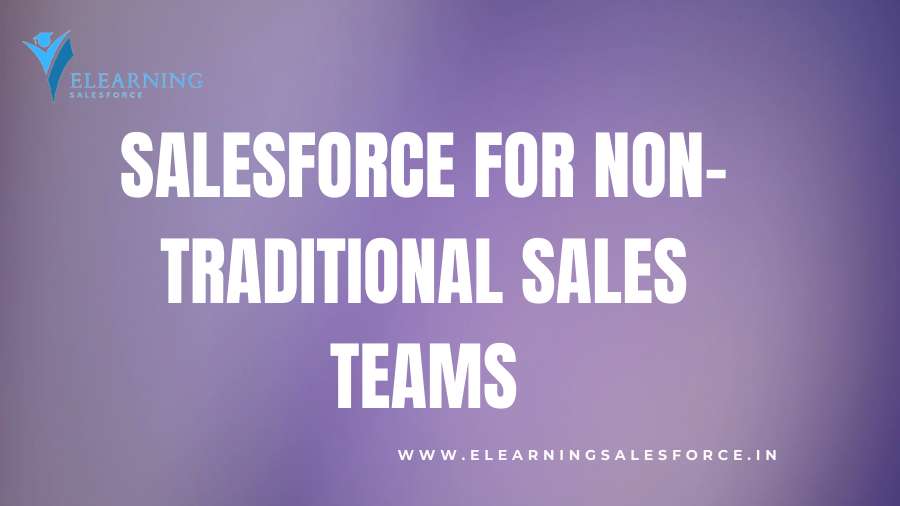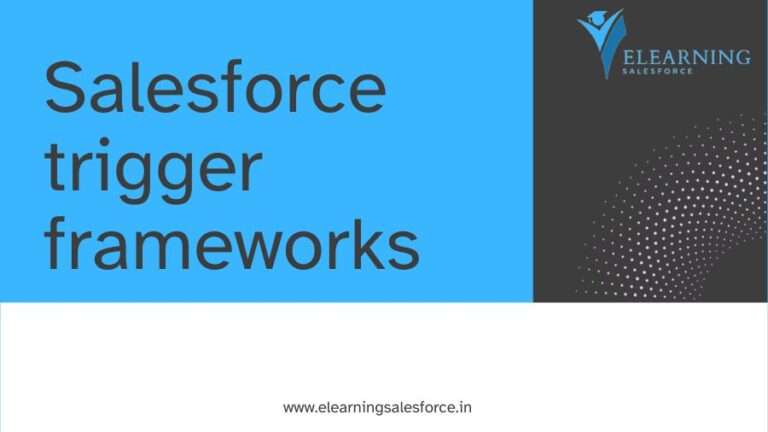Salesforce, a powerhouse in customer relationship management (CRM), is not just for traditional sales structures. In the evolving landscape of non-traditional sales teams, Salesforce emerges as a game-changer. This article delves into how Salesforce is reshaping the dynamics of remote and freelance sales, offering flexibility, tools, and success stories.
Introduction
Definition of Salesforce
Salesforce, at its core, is a cloud-based CRM platform designed to streamline business processes related to sales, customer service, and marketing. Its adaptability makes it an ideal candidate for reshaping how non-traditional sales teams operate.
Evolution of Non-Traditional Sales Teams
The conventional sales model is transforming. Remote work and freelance sales representatives are becoming more prevalent, demanding innovative solutions to support their unique needs.
The Dynamics of Non-Traditional Sales Teams
Remote Sales Teams
With the rise of telecommuting, sales teams are no longer confined to office spaces. Remote teams demand tools that foster collaboration, data accessibility, and real-time communication.
Freelance Sales Representatives
Freelancers bring a different dynamic to sales. Salesforce provides a platform that caters to the independent nature of freelancers while ensuring they stay connected to the broader sales strategy.
Salesforce as a Catalyst for Non-Traditional Sales
Cloud-Based Accessibility
Salesforce’s cloud-based nature ensures that sales teams can access crucial information from anywhere. This is a significant advantage for non-traditional teams always on the move.
Customization for Diverse Sales Models
One size doesn’t fit all in non-traditional sales. Salesforce’s customization options allow businesses to tailor the CRM to the specific needs and workflows of diverse sales models.
Benefits and Challenges of Utilizing Salesforce for Non-Traditional Sales
Enhanced Flexibility
Non-traditional sales teams thrive on flexibility. Salesforce provides the tools to adapt to different work environments and sales approaches, ensuring teams can remain agile.
Addressing Connectivity Challenges
Salesforce addresses the connectivity challenges often faced by remote teams, ensuring that information flows seamlessly and that team members stay connected regardless of geographical barriers.
Salesforce Tools Tailored for Non-Traditional Sales
Mobile Applications
Salesforce’s mobile applications empower sales teams to access critical data on the go. This is invaluable for remote and freelance representatives who need real-time information.
Collaboration Features
The collaboration features in Salesforce create a virtual workspace where team members can work together, share insights, and contribute to the sales strategy irrespective of their physical location.
Real-Life Success Stories
Companies Thriving with Non-Traditional Sales and Salesforce
Several companies have embraced non-traditional sales models and attribute their success to the seamless integration of Salesforce. Case studies showcase the transformation and positive impact on revenue.
Achievements and Transformations
Real-world outcomes underscore the transformative power of Salesforce in non-traditional sales scenarios, ranging from increased efficiency to improved customer satisfaction.
Overcoming Common Obstacles
Training Remote Sales Teams
Effectively training remote teams is a challenge. Salesforce offers resources and tools to ensure that teams are well-versed in utilizing the CRM for maximum impact.
Ensuring Data Security
With the dispersed nature of non-traditional sales teams, data security is a concern. Salesforce addresses this with robust security measures, protecting sensitive information.
Future Trends in Non-Traditional Sales with Salesforce
Integration of AI for Predictive Sales
The future of non-traditional sales involves predictive analytics and AI integration. Salesforce is at the forefront, providing tools to analyze data and make informed predictions.
Continued Adaptation to Changing Work Environments
As work environments continue to evolve, Salesforce adapts, ensuring that non-traditional sales teams have the tools they need to thrive in an ever-changing landscape.
Implementing Salesforce for Non-Traditional Sales
Step-by-Step Guide
Implementing Salesforce for non-traditional sales requires a strategic approach. A step-by-step guide ensures a smooth transition and maximum utilization of the CRM’s features.
Best Practices for Integration
Best practices, such as involving key stakeholders in the implementation process and ensuring ongoing support, contribute to the success of Salesforce integration in non-traditional sales.
User Testimonials
Positive Experiences with Salesforce in Non-Traditional Sales
User testimonials highlight the positive impact of Salesforce on the day-to-day operations of non-traditional sales teams. From increased efficiency to improved collaboration, the feedback is promising.
Areas of Improvement
Constructive criticism from users provides insights into areas where Salesforce can further enhance its support for non-traditional sales teams, ensuring a user-centric approach to development.
Comparison with Traditional Sales Models
Salesforce’s Advantages Over Traditional Systems
Comparing Salesforce with traditional systems showcases the advantages it brings to the table. From flexibility to real-time collaboration, Salesforce stands out as a superior solution.
Potential Challenges and Solutions
Identifying potential challenges in transitioning from traditional to non-traditional sales models with Salesforce allows businesses to proactively address issues and find effective solutions.
Tips for Maximizing Salesforce for Non-Traditional Sales
Leveraging Automation
Salesforce’s automation features can significantly enhance the efficiency of non-traditional sales teams. From lead management to reporting, automation streamlines processes.
Personalization for Varied Sales Approaches
The flexibility of Salesforce allows for personalized approaches to sales, catering to the diverse needs of non-traditional sales models and individual freelancers.
Addressing Concerns about Cost
Cost-Efficiency for Non-Traditional Sales Teams
While implementing Salesforce involves costs, the long-term efficiency gains and revenue boosts often outweigh the initial investment for non-traditional sales teams.
Scaling with Salesforce
Salesforce’s scalability ensures that as non-traditional sales teams grow, the CRM system can scale to accommodate increased data, users, and complexity.
The Impact of COVID-19 on Non-Traditional Sales Teams
Accelerated Shift to Remote Work
The global pandemic accelerated the shift to remote work, making tools like Salesforce indispensable for non-traditional sales teams seeking business continuity.
Salesforce’s Role in Business Continuity
Salesforce played a crucial role in helping non-traditional sales teams adapt to the challenges posed by the COVID-19 pandemic, ensuring uninterrupted operations.
Case Study: A Non-Traditional Sales Team’s Journey with Salesforce
Adoption Process
A detailed case study illustrates how a non-traditional sales team successfully adopted Salesforce, detailing the challenges faced and overcome during the process.
Measurable Outcomes
Examining the measurable outcomes of the case study provides tangible evidence of the positive impact Salesforce can have on non-traditional sales team success.
Conclusion
In conclusion, Salesforce isn’t just a tool for traditional sales models—it’s a catalyst for the future of non-traditional sales. Its flexibility, adaptability, and collaborative features position it as a crucial asset for teams embracing remote work and freelance sales.



